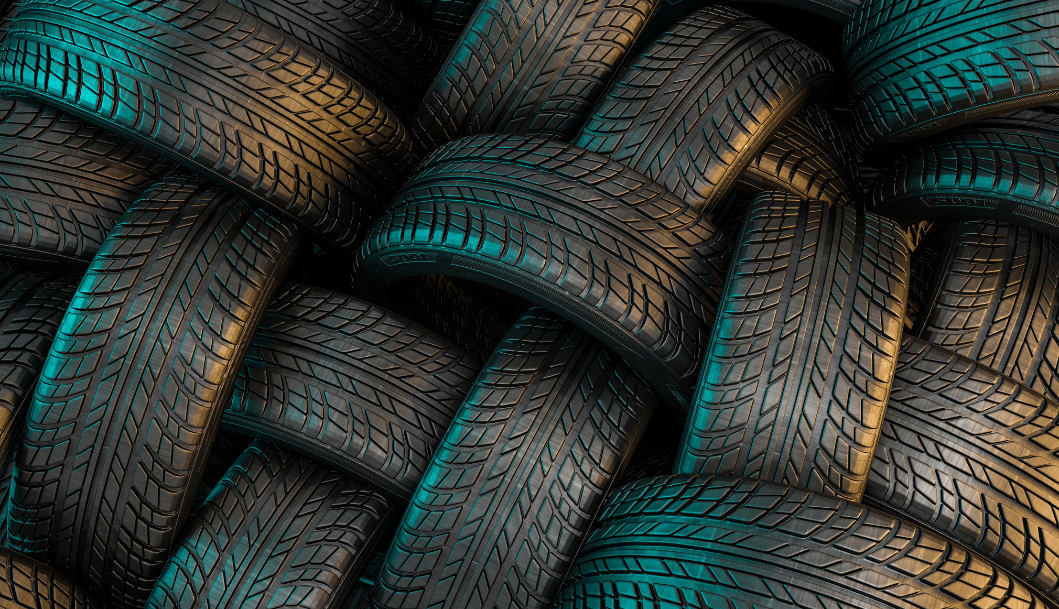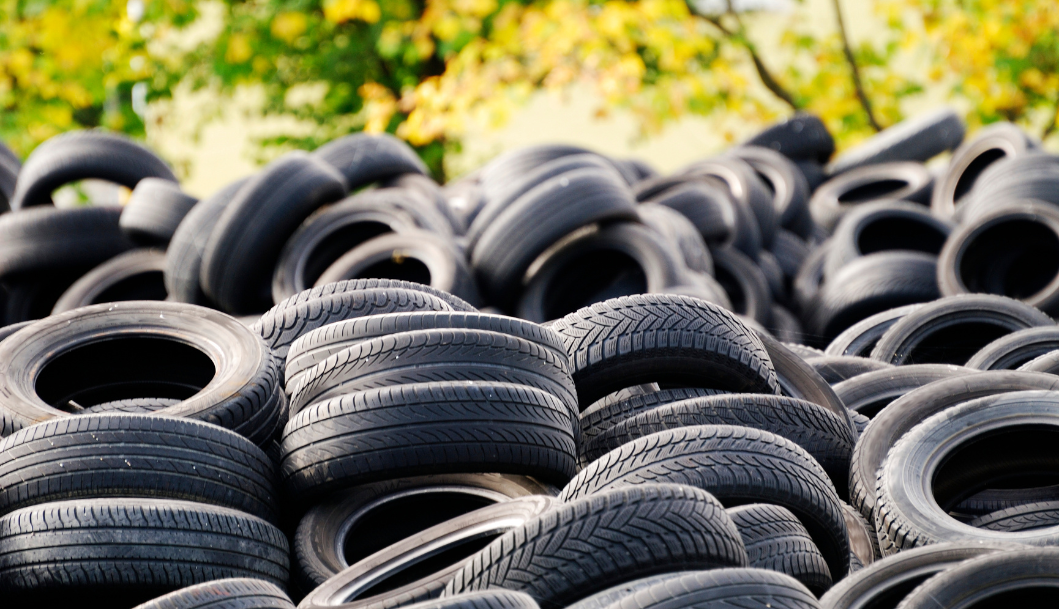Advanced Technologies Could Process 20 Percent of U.K.’s Waste Tires

Norwegian rubber waste recycler Wastefront is set to open a $120 million plant in Sunderland, England, either late in 2024 or early 2025. The plant will utilize pyrolysis to convert end-of-life tires into tire-derived oil (TDO), which will then be refined into various combustion fuels, including diesel.Wastefront claims that the TDO produced will be cleaner than fossil diesel and cost-competitive, depending on the grade. It is expected to be cheaper than hydrotreated vegetable oil and similar biofuels.
The energy and commodities company Vitol has agreed to purchase all the TDO produced by Wastefront. Additionally, Wastefront has secured agreements with off-takers for two other products derived from end-of-life tires: recovered carbon black (rCB), which will be used in new tires for reinforcement, and steel, which will be sold on the spot market. Initially, the plant will operate at 45% capacity, with plans to ramp up to 100% within a year, reaching a capacity of 80,000 tons per year. This would account for 20% of all waste tires in the U.K.
Henrik Selstam, Wastefront's chief technology officer, stated, "We use commercial and readily available technology in our process. So, there is not much new to this, but the output depends on how you manage the process. We are applying existing technology in a more clever way."
The tires will be sorted, shredded, and fed into a pyrolysis reactor. The rubber will turn into oil and carbon, while gases will be used to feed the heater, with the excess used to generate electricity to run the plant. Any remaining waste will be burnt in a regenerative oxidizer, converting toxic gases into carbon dioxide (CO2) and water.

What sets the Sunderland plant apart is its preprocessing or preliminary step, along with its scale of production. The preliminary step involves using a laser reader to identify and track each tire, allowing for real-time monitoring of output against input, enabling adjustments to be made to the process based on incoming feedstock.
Wastefront has also specified the temperature and residence time to optimize the output of both oil and carbon black. Selstam explained, "That means that we will get the highest quality of oil without sacrificing too much of the carbon quality. Usually, you just get good quality of one or the other."
Pyrolysis is a depolymerization process that cuts tires into shorter carbon chains to produce liquid, which will be further refined in the same way as crude oil but from a non-fossil source. This process involves minimal oxygen, which helps mitigate emissions of nitrogen oxides (NOx), sulfur oxides (SOx), and volatile organic compounds (VOCs).
Lifecycle analyses conducted by DNV GL in the U.K. suggest that the process will avoid 60,000 tons of CO2 equivalent (CO2e) per year compared to using raw fossil fuels, or 1.8 million tons of CO2e over the planned lifetime of the Sunderland plant.
Using rCB instead of virgin carbon black is expected to further reduce the carbon footprint by up to 10,000 tons CO2e.
Selstam believes that the liquid hydrocarbons used to produce the biofuels are essential for storing large amounts of energy, making them useful for transportation. He sees these biofuels as a bridge to decarbonizing transportation technologies.
Despite these advancements, there are still challenges to overcome. Potential end-users are skeptical about using rCB, and there is a lack of universal testing standards relevant to all technologies. Selstam and his team are working with the Renewable Transport Fuel Association (RTFA) in the U.K. to determine how waste will be treated to be considered sustainable. One positive development is the industry's increasing receptiveness to innovations like Wastefront's. Selstam noted, "We started four years ago talking to tire manufacturers, and they just listened and shrugged. About two years ago, they started talking to us. Now they are listening with keen interest."
Partnering with Hulteberg has enabled Wastefront to purify the oil by removing contaminants, particularly sulfur, with the help of hydrogen. Hulteberg also works on alternative methods to stabilize the oil for transportation. Christian Hulteberg, managing director of Hulteberg and a professor in chemical engineering at Lund University, commented, "We see this partnership with Wastefront as a natural progression of the work we have been doing over the last decade with non-traditional feedstocks for renewable and recycled fuels."
Overall, Wastefront's project presents an innovative solution to the environmental challenge of waste tires. Selstam is optimistic about its potential, stating, "End-of-life tires are abundant no matter where you are in the world. The need for a solution to landfilling tires is huge. Our process works everywhere, and we have many initiatives on several continents."
Article Source: https://www.waste360.com/waste-recycling/new-plant-could-process-20-percent-of-u-k-s-waste-tires




















